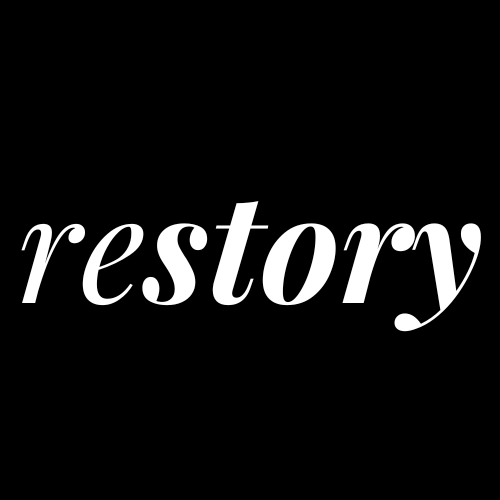I read this post last Spring and asked the author if I could feature it here as The Seven Deadly Friendships released.
The person agreed as long as I used a pseudonym. So this helpful post is written by Benjamin Tatian.
Benjamin titled it:
Judgment, Conflict and Vulnerability
Dear Friends—
A little over a week ago I shared about a hurtful email I received from some friends. Call me naïve, but I had no idea my sharing would prompt the kind of response it did. I want to say thank you. I feel very loved and cared for, despite the fact that I have not replied to any of the comments people made.
Among the responses, some friends encouraged me to consider what parts of the email might contain points of growth for me. That was a helpful suggestion, so…
Over the past week I have taken time to examine my own heart. The last thing I ever want to be is intractable and slow to learn. In fact, those who are closest to me know that looking for my own faults and failures is what I do best (to a fault, they have told me). One friend has put it this way, “The thing I like about Ben is that he’s really good at being wrong.”
I can honestly say: I receive that as a high compliment. Because I’m not perfect, I am bound to wrong others. Therefore, it is incumbent upon me (especially as a Jesus-follower) to get “really good at being wrong.” The truest prayer any Christian can ever make is: “Lord, have mercy on me, a sinner.”
The times I’ve messed up most are those times when I forget I’m just a sinner. I don’t want to use that as an excuse to treat others wrongly, but it’s good for me to remember I do hurtful things sometimes, too. It should keep me humble and cause me to be quick to ask forgiveness.
In terms of the issues my friends raised, they were concerned about a music video I posted some weeks ago (it seemed risqué to my friends) and they expressed not insignificant concerns about the work I have chosen in ministry. After taking time to seriously consider their concerns, I must say that my conscience is clear.
Last week, I shared with you about my experience because I believe the biggest liability to Christianity today is Christians themselves. Our judgmental attitude is a damned repulsive disease that threatens to kill us. Our churches have too often served as incubators of the Judgement Virus and we have become skilled at passing it on in subtle ways, masking it in the guise of “concern for another.”
It is not our place to judge.
Even so, if we feel compelled to share a concern with a friend, we should certainly check to see whether we have the relational equity from which to share. These particular friends feel they know me because they follow things I write online or through ministry updates I send out from time to time—but we have not lived near them for twenty years and I have not seen them for more than eight years. Additionally, it has been at least eight years since I have heard from them personally (other than the email they sent me the other day).
I have lots of friends who live near me (and even others who live far away) with whom I am accustomed to receive feedback. They offer ways for me to grow from a position of trust. I know they have my best interest at heart and they have shown me that they do not think less of me, even though it’s clear to everyone that I’m not perfect.
My email friends apparently still feel close to me. I do not fault them for sharing their concerns, if that is the case. But they have misjudged the extent to which they have entrée into my personal growth.
One comment in the thread of my post last week provided some tips for dealing with conflict. An article linked in that comment included Scripture to help guide me in knowing how to respond. I’m grateful for my friend pointing me to Scripture.
In this case, some principles shared by Thomas Kilmann complement what I find in Scripture. Kilmann talks about 5 possible ways of navigating conflict when it arises. When faced with a conflict, one has the option of
- Avoiding
- Confronting
- Accommodating
- Compromising, or
- Collaborating.
We tend to think of certain responses to conflict as ALWAYS good or ALWAYS bad. For example, our tendency with conflict is to think it is ALWAYS good to collaborate and NEVER good to avoid it.
But Kilmann asserts that, depending on the situation, any of the five possible responses may be suitable. Specifically, one needs to take into account
- The importance of the issue
- The importance of the relationship, and
- The likely consequences of the chosen course of action (or inaction).
In this case, my response to my friends will take into account that we really don’t have a close relationship and, though their email was hurtful, the concerns they raised stem from the fact that they don’t know me—so the issues are (in effect) non-issues, even though the issues were important to my friends.
Upon reflecting on this situation, I want to share with you something important I see embedded in it. It has to do with vulnerability. It is arguable that my friends thought they knew me better than they do because of how I share my life in a public way.
Vulnerability is both powerful and dangerous. If you’re vulnerable, you open yourself up to judgment—but without vulnerability, any form of acceptance you receive (from within or without) is merely shallow and incomplete.
To mature is to make peace with one’s own imperfection. Vulnerability is a practice in doing just that. If I cannot be vulnerable about my doubts and failures, my sorrows and weaknesses, what you will see is only a part of me. The mystery of redemption is that God is able to use my darkness to shine his light, my weakness to display his strength, my lack to show the inexhaustible supply of his grace.
I want to be whole before both God and others, so I must live in such a way that you see me, warts and all. I want to offer others not the self that is easy for me to project, but my real self. To offer only a false self ultimately foments hopelessness—who else could ever measure up? None of us are shiny and happy through and through.
Somehow, to share a struggle is to help another in their struggles. How strange it is that in sharing struggles we invite Hope to be our companion!
To really help others I must do so out of who I am, not who I would pretend to be in front of others. This, too, opens one up to judgment.
Some people might wonder why I am sometimes publicly vulnerable. It is because I believe that it is only in offering my true self that I can be a help to others. It is because I happen to believe that God’s consolation meets us right at our point of desolation. That’s what the cross is all about. It is a place where our desolation becomes God’s (in the death of Jesus), so that he may offer us our only consolation (in the wonder of forgiveness and the beauty of grace).
Sometimes we try to divide truth and grace; to be vulnerable is to live in their union. Truth is grace when one knows one’s imperfections and is unafraid to be imperfect before God, before others—and before oneself. Vulnerability is really a form of freedom—and maybe it is the highest. Free persons are truly able to say, “This is me; I hold nothing back.”
Vulnerability feels unwise, however. Maybe that is why we see so little of it. The most pervasive fake news stories we encounter today are the fake stories we tell each other. What we all really need…is something real.


0 Comments